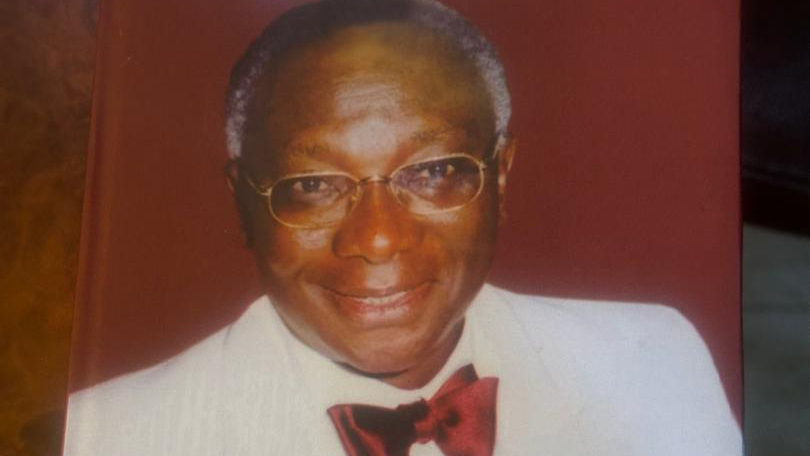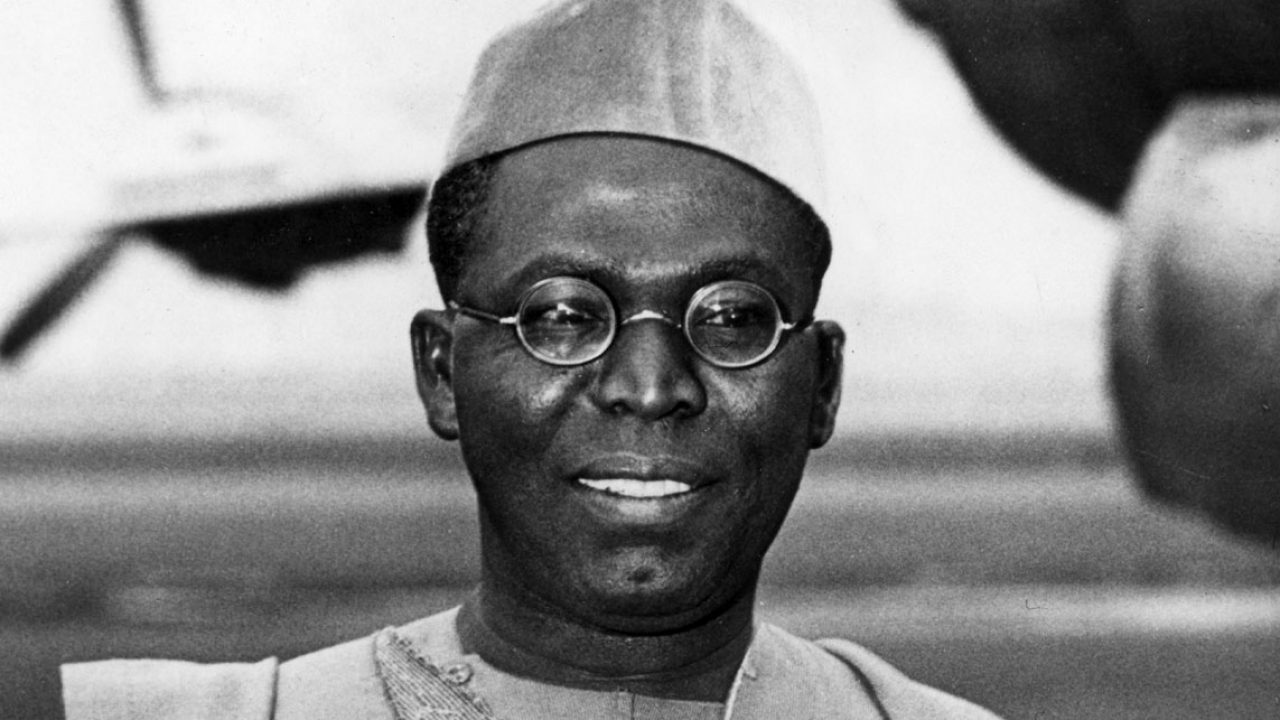
When he became the head of state on December 31, 1983, he promulgated decree 4 which gagged the press. Through the decree he jailed my friends, Tunde Thompson and Nduka Irabor of THE GURADIAN Newspaper. Several journalists including myself and Folu Olamiti were detained.
Professor Tamunoemi Sokari David-West (August 26, 1936 – November 11, 2019) was appointed Minister of Petroleum by General Muhammadu Buhari between 1984 and 1985. On September 12, 1985, General Ibrahim Babangida swore in his first cabinet. Among those appointed Ministers at that time were Lt-General Julius Alani Ipoola Akinrinade, Lt-Colonel Tanko Ayuba, Major General Domkat Bali, Professor Jubril Aminu, Rear Admiral Patrick Koshoni, Professor Bolaji Akinyemi, Major-General Mamman Vatsa, Dr. Kalu Idika Kalu, Professor Olikoye Ransome-Kuti, Alhaji Lawal Mala, Lt-Colonel Anthony Ukpo, Lt-Colonel John Nanzip Shagaya, Prince Bola Ajibola, Alhaji Rilwanu Lukman, Dr. Chu Okongu, Professor Tam David-West, Lt-Colonel Ahmed Abdullahi, Professor Emanuel Emovon, Air-Vice Marshal Ishaya Aboi Shekari, Majoe General Gado Nasko, Brigadier Jeremiah Useni and Air Commodore Hmaza Abdullahi.
General Babangida retained Professor Tam David-West as oil Minister.
He was eventually removed as minister and arrested by the Babangida regime for allegedly contributing to the economic adversity of the country; He was discharged and acquitted of these charges by Nigeria’s Special Appeal Court on 8 August 1991.
In 1986, General Babangida appointed Dr. Rilwanu Lukman (26 August 1938 – 21 July 2014) as the Minister of Petroleum Resources, holding that position until February 1990. In that role, he was also chairman of the board of the Nigerian National Petroleum Corporation.
In the transitional Council appointed in 1993 and headed by Chief Ernest Adegunle Oladeinde Shonekan GCFR (9 May 1936 – 11 January 2022), a retired Federal Permanent Secretary, Chief Phillip Asiodu was made the Minister of Petroleum and Mineral Resources, Alhaji Hassan Hadeja was made Minister of State for Petroleum and Mineral Resources.
On assuming power, General Sani Abacha appointed Chief Donald Etiebet as Minister of Petroleum. Chief Etiebet was a brother to late Senator Donald Duke Etiebet, my very good friend who was elected the governor of Cross Rivers State in 1983. They are both from Ikot Ekpuk, now in Akwa Ibom state.
In 1995 General Abacha GCFR (20 September 1943 – 8 June 1998) removed Chief Etiebet and replaced him with Senator Dan Etete. Chief Etete brought a lot of controversy to that Ministry. There was a time he had a quarrel with the then Minister of Finance, Chief Etubom Anthony Ani (86), the son of Chief Michael Ani, the former Chairman of the Federal Electoral Commission, FEDECO. . The quarrel became front page news in most newspapers with both of them accusing each other and Chief Etete threatened to “dance naked on the street” over the issue.
After the sudden death of General Sani Abacha on June 8, 1998, General Abdusalam Abubakar took over.
On August 22, 1998, General Abdusalam swore in his cabinet. This was how The New York Times captured the event the following day. The story was titled Nigerian Strongman Names a Cabinet.
“Nigeria’s ruler, Gen. Abdulsalam Abubakar, released the names of his military and civilian Cabinet today, but no one was appointed to the important position of oil minister.
General Abubakar gave no explanation for the absence of an oil minister in an address to the new Cabinet, in which he told ministers to shun corruption and ignore politics in the months leading up to the restoration of democracy next May 29.
Officials said that a new department would be created to oversee the oil industry, which accounts for at least 90 percent of the country’s export earnings.
Ismaila Usman, a central banker with a reputation for discipline who was demoted for standing up to late dictator, Sani Abacha, in his demands for cash, was named Finance Minister”.
Although General Abdusalam did not appoint a Petroleum Minister, following pressures from his deputy, the then Chief of General Staff, Admiral Okhai Michael Akhigbe GCON (29 September 1946-28 October 2013), General Abdusalam appointed Chief Godwin Aretenakai Adams (February 27, 1938- August 7, 2002) as special adviser of Petroleum Affairs. Chief Adams was from Auchi in Edo State while Admiral Akhigbe was from Fugar also in Edo state.
Chief Adams was a Geo-physicist, reputed to be highly principled, Adams’ tenure as the managing director of the Nigerian National Petroleum Corporation (NNPC), between November 1985 and April 1990, would be remembered for a very long time to come.
He stood firm against what he considered attempts to undermine standards and plunge the sector into crisis, even at the risk of losing his job as the chief executive of the NNPC, during the administration of Gen. Ibrahim Babangida.
One of such instances was his opposition to the appointment of Alhaji Abba Gana as General Manager, Marketing of the Nigerian Liquefied Natural Gas Limited.
Although he was subsequently suspended from office by the government on account of his position in 1989 and retired in April 1990, Adams left the NNPC with his head held high and reputation unsoiled.
Following his appointment as special adviser on Petroleum by General Abdusalam, the assumption was that he would discharge his duty as Minister of Petroleum. The assumption became grounded when he moved to the office vacated by Chief Dan Etete in the Federal Secretariat. Three weeks after, he realized that Government officials in the oil business were not reporting to him instead they were reporting to the Secretary to the Government of the Federation, Alhaji Gidado Idris GCON (15 March 1935 – 15 December 2017).
Nobody told him that he was not the oil Minister. He had audience with Alhaji Gidado Idris but the issue was not resolved. Several times he had meetings with Admiral Akhigbe yet the issue was not resolved. Sponsored Magazines and newspaper publications surfaced portraying Alhaji Gidado Idris in bad light. I had a tight schedule visiting newspapers and magazines, shuttling between Kaduna, Lagos and Ibadan defending my boss, Alhaji Gidado Idris.
In the midst of the crisis, General Abdusalam named the Minister of National Planning, Chief Rasheed Abiodun Oladosu Gbadamosi (1943-2016), an industrialist, a boardroom guru, a good friend that I missed daily, to lead the Federal Government delegation to the OPEC meeting in Vienna. The Nigerian delegation to OPEC meetings is the statutory responsibility of the Minister of Petroleum or anyone in charge of that Ministry. After the Vienna meeting, it dawned on Chief Adams that the Ministry of Petroleum was in fact under the Head of State, General Abdusalam Abubakar.
When President Obasanjo came to power in 1999, he did not make any pretence about it, he just named himself Minister of Petroleum. He was Minister of Petroleum during his eight years tenure.
President Muhammadu Buhari followed the footsteps of President Obasanjo when he became the President in 2015. For the records, President Muhammadu Buhari GCFR is the longest serving Minister of Petroleum.
Expectedly there are pressures on Asiwaju Bola Ahmed Tinubu on what to do with the Ministry of Petroleum. He either follows the footsteps of General Abdusalam Abubakar, President Obasanjo or President Buhari by naming himself Minister of Petroleum. Or he follows the footsteps of President Shehu Aliyu Usman Shagari, General Babangida, Chief Shonekan, General Sani Abacha, President Umaru Yar’adua or President Goodluck by naming someone as the Minister of Petroleum. It will be hard choice for the in-coming President.
Concluded
Teniola, a former Director at the Presidency wrote from Lagos.






